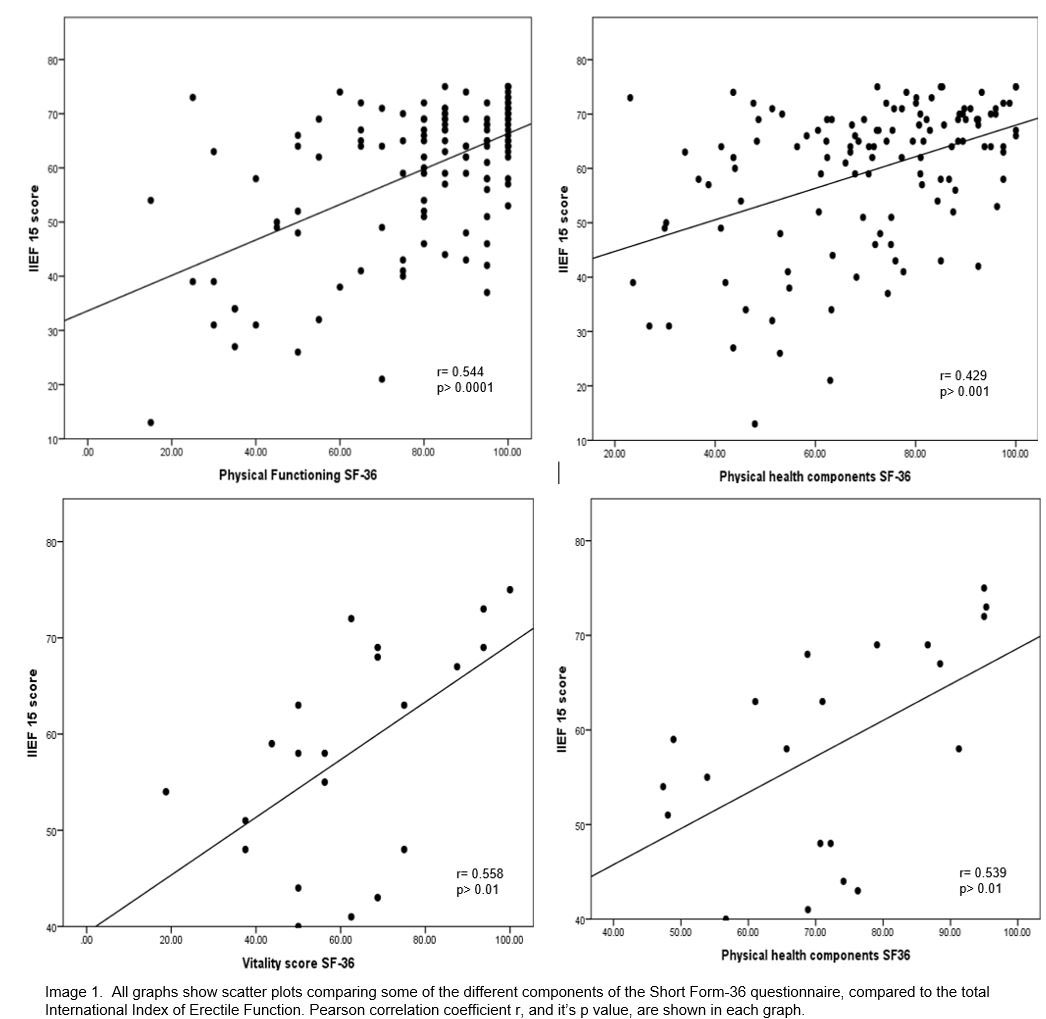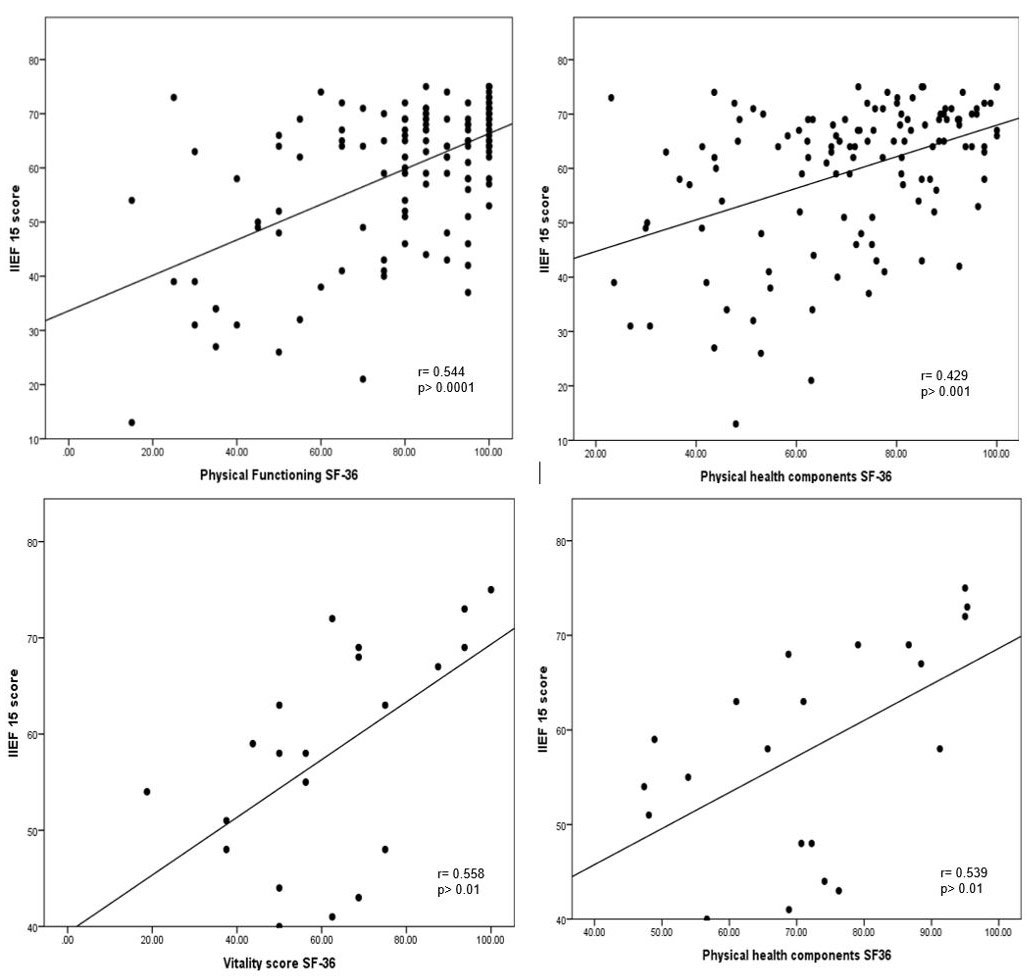Session Information
Date: Monday, November 11, 2019
Title: 4M118: Reproductive Issues in Rheumatic Disorders (1896–1901)
Session Type: ACR Abstract Session
Session Time: 4:30PM-6:00PM
Background/Purpose: Although SLE is uncommon in men, the disease is usually more severe and requires more aggressive immunosuppression in male patients. There are multiple studies evaluating the association between SLE and sexual function in female patients and its impact on their quality of life, but information regarding male patients is practically non-existent.
Methods: We performed a longitudinal study in a referral center in Mexico City (2018- 2019). We included men aged ≥16 years who fulfilled ACR criteria for SLE and who were sexually active in the previous six months. All subjects answered the International Index of Erectile Function-15 (IIEF-15), the SF-36 (which determines generic health-related quality of life) and the HAQ questionnaire in the basal and subsequent visits. Other clinical, serological and demographic variables were measured. Statistical analysis was performed with SPSS v21.
Results: We included 124 male SLE patients. Mean age was 36.8 (±11.8) years and most patients (88%) were taking immunosuppressive therapy. There was some degree of sexual dysfunction in 58 (47.5%) of patients. Table 1 shows the different characteristics of patients with and without abnormalities in sexual function. Of note, men who presented some degree of sexual dysfunction had fewer years of schooling (p=0.010) and a higher HAQ score (p=0.011).
In the first visit, abnormalities in sexual function, as measured by IIEF-15, were associated with different spheres of the SF-36 score. The most relevant correlations between the different components of SF-36 and global IIEF-15 are shown in Fig 1. Other correlations were found between global IIEF-15 and the absolute neutrophil/lymphocyte ratio (r= -0.259, p=0.004), as well as the SLICC score (r= -0.262, p= 0.003). Correlations between these same variables remained significant in subsequent visits.
When asked, 84.3% of patients said they would like to have specialized care if they were diagnosed with sexual disfunction. Interestingly, only 22% of patients thought their disease could have repercussions on their sexual function.
Conclusion: To our knowledge, this is the first study to show that sexual function in male SLE patients seems to be closely associated with the patients quality of life, particularly with its physical aspects. Higher prevalence in patients with low education may reflect the importance of the psychological components in the development of this complication. The association of lymphopenia with an impaired sexual function could be related to its role in endothelial dysfunction and atherosclerosis. These findings highlight the need for rheumatologist to promote and coordinate a multidisciplinary approach for male SLE patients with sexual dysfunction.
To cite this abstract in AMA style:
Valdez-López M, Campos-Guzmán J, Barrera-Vargas A, Govea-Peláez S, Gómez-Martín D, Alcocer-Varela J, Aguirre-Aguilar E, Padilla-Ortíz D, Merayo-Chalico J. Sexual Function and Health-related Quality of Life in Male Patients with Systemic Lupus Erythematosus, the Untold Story [abstract]. Arthritis Rheumatol. 2019; 71 (suppl 10). https://acrabstracts.org/abstract/sexual-function-and-health-related-quality-of-life-in-male-patients-with-systemic-lupus-erythematosus-the-untold-story/. Accessed .« Back to 2019 ACR/ARP Annual Meeting
ACR Meeting Abstracts - https://acrabstracts.org/abstract/sexual-function-and-health-related-quality-of-life-in-male-patients-with-systemic-lupus-erythematosus-the-untold-story/


